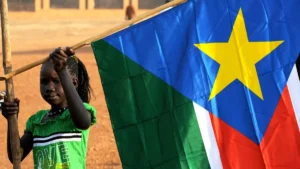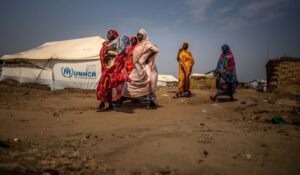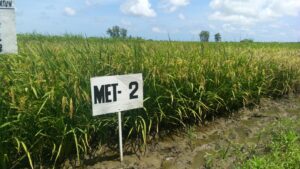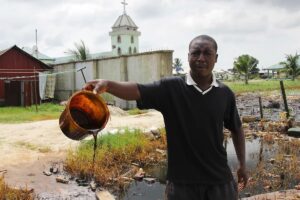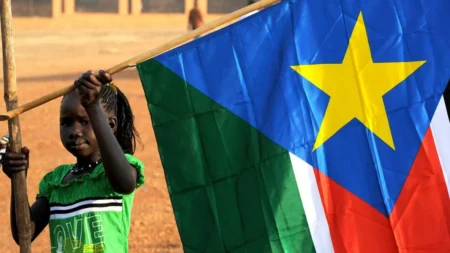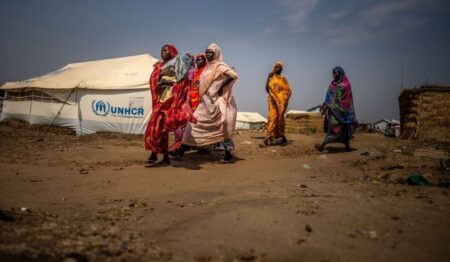- IMF’s Sub-Saharan Africa economic forecast shows 1.2 percent GDP growth
- The US Congress proposes extending Agoa to 2041, covering all African countries
- Millions at risk of famine as fuel tax row halts UN aid operations in South Sudan
- Empowering the Future: Humanity Protocol’s Dream Play Initiative
- TikTok Community Guidelines update aims to curb hate speech and misinformation
- Rwanda sees 39% surge in bank borrowers as Sacco and MFI loan uptake declines
- Kenya Ports Authority wins dispute case over cargo release
- Why Africa can reap billions from digital economy
Opinion
- Artificial intelligence in Africa can potentially propel the fintech industry into a new era of financial inclusion.
- AI tools can analyse data from client discussions, producing legal documents in simple language and at a fraction of what it would typically take to draft a contract.
- Banks, for example, can make their services more affordable to their customers by rolling out AI-powered chatbots to handle routine queries while sparing them from having to travel to a bank branch.
It’s difficult to imagine a time before the widespread adoption of mobile technology in Africa – particularly where financial services are concerned. For millions of unbanked people, transactions were limited to cash, postal services or even the barter system.
Now, in much the same way as mobile payments completely disrupted the status quo, AI has the potential to propel the fintech industry into a new era of financial inclusion. And perhaps most exciting …
- One of the most important ways a fintech can listen to its customers is to gauge how they engage with its products.
- Having a deep understanding of customer needs results in innovative solutions.
All around the world businesses are pulling out the stops to achieve growth in what can best be described as challenging economic conditions. Africa is no exception. The continent has long been recognised for its immense potential, and as such businesses across sectors are investing heavily into the continent.
Advancements in technology make serving the unbanked and underserved populations in Africa more viable than ever before. However, that does not mean growth comes easily. It is a hyper competitive and complex environment where genuinely understanding your customer is key to growth.
Even with this textbook understanding, there is a strong urge to take the “build it and they will come” approach because we can get caught up …
- Namibia is fortunate to benefit from the experiences of other oil- and gas-producing states.
- The country’s oil and gas sector is still looking forward to reaching the production phase, but S&P Global analysts don’t anticipate Namibia’s first oil production will come until 2029.
- Further, the country’s first gas-to-power project is scheduled to begin in 2027.
Namibia’s energy sector is still looking forward to reaching the production phase — S&P Global analysts don’t anticipate Namibia’s first oil to come until 2029, and the country’s first gas-to-power project is scheduled to begin in 2027.
Ohio State Team Jersey
ohio state jersey
Ohio State Team Jersey
asu jersey
ohio state jersey
Iowa State Football Uniforms
detroit lions jersey
micah parsons jersey
micah parsons jersey
Iowa State Football Uniforms
fsu football jersey
OSU Jerseys
custom football jerseys
asu jersey
Before Namibia achieves these hotly anticipated milestones, Namibian lawmakers can implement thoughtful, …
In Somalia, the challenge to contain COVID-19 is staggering. The country’s health infrastructure has been gutted by decades of conflict and instability.
A large part of the population lives in close quarters, while millions reside in decrepit settlements for internally displaced people without money to buy soap or access to regular running water. At the same time, staying at home is not a practical option for most informal workers who need to leave their homes daily to earn money and put food on the table.
Somalia’s capacity to manage the Covid-19 public health threat is a cause for concern. More needs to be done to ensure we curb the spread of the virus.
Grounds for hope still exist that Somalia may escape the type of outbreak that has overwhelmed some Western health systems.
Somalia finds itself in good standing with international financial institutions for the first time in 30 years. …
As soon as East African countries restricted movements and public gatherings in response to the rising cases of Covid-19, perhaps owing to the scarcity of information on the pandemic, misinformation flew around social media platforms, causing an overload of fear across the region.
Kenya and Uganda were the first to take precautionary measures as Tanzania adopted a more relaxed stance towards the pandemic, which is being seen as a threat to Africa and the world. During this past week to date, Kenyans on Twitter and East Africans at large have been tweeting information about Tanzania, making it the fourth most trending topic in the world.
Furthermore, the US Embassy in Dar es Salaam, also came out with a statement indicating that “many hospitals in the main city of Dar es Salaam have been overhelmed in recent weeks, contends the risk of contracting Covid-19 there is “extremely high.”
This in turn …
Africa remains one of the regions with the greatest growth potential in the world with African organisations focusing their growth strategies beyond borders. With these growth strategies come complex new risks which demand sophisticated cross-border insurance solutions. Doing business between different African countries means that all involved need comprehensive cross-border insurance, as this can protect operations by covering all potential risks that may arise between different legal frameworks. DLA Piper’s Luc Bigel and Hamza Akli share insight on Africa’s challenges in this regard and how to structure an efficient, cost-effective insurance programme for cross border risks.
What are the main challenges to trade in Africa, particularly with regard to potential business loss?
We believe there are two main challenges, depending on the situation in which the investor or partner finds themselves. The first is that of solvency. Indeed, in many African countries there is an obligation to use local players …
The world is in economic lockdown due to the COVID-19 pandemic. No good news is coming out of any media whether mainstream or social media. Never in our lifetime have we witnessed such a magnitude of business and border closures, from developed to developing countries. It is a global problem and therefore, its effects should be measured globally. The coverage of this pandemic by the global and local media clearly indicates the economic problems ahead not only for individuals but also for businesses at large. This calls for a reflection of the effect of this pandemic on the financial sector in Tanzania given the current global and local environment.
A summary of the financial sector in Tanzania shows a composition of thirty commercial banks, six community banks, five microfinance banks and two development finance banks (collectively lenders). The primary function of these lenders is to acquire liabilities through deposits and …
Africa appears to have narrowly escaped the level of devastation that COVID19 is wreaking in the global north with China as its entry.[1] As if the virus followed the global supply chain to destroy it.[2] The global supply chain links China to the global north before connecting to Africa[3] so by the time the virus got here African leaders shut the borders – that is the saving grace despite the doom’s day prophecies of Bill Gates.[4] Africa got it right this time around without the help of the western saviors which begs George Ayittey’s famous quote “Africa is poor because she is not free”.[5]
According to the IMF[6] and WorldBank[7], Africa would experience her first recession in 25 years, but it would not be as severe as the global north.[8] Her recovery in my view could be fast-tracked by four mega …
In the wake of Covid-19, the co-operative sector which is a key driver in Kenya’s economy has not been spared in experiencing the devastating shock waves caused by the pandemic that continues to ravage the world at an alarming rate. Savings and credit co-operatives (saccos) make up about 45% of Kenya’s Gross Domestic Product (GDP), with an asset base of over Ksh1 trillion, mobilized savings and deposits in excess of Ksh732 billion and a loan portfolio of Ksh700 billion. In addition, the sector employs more than 500,000 people whilst necessitating self-employment especially through lending.
The Ministry of Co-operative Development estimates that 80% of Kenya’s population derives its income either directly or indirectly through co-operative activities. In a recent report by the World Council of Credit Unions (WOCCU) Kenya has the largest co-operative movement in Africa and is ranked in 7th position globally, making it very pertinent in the economic …
